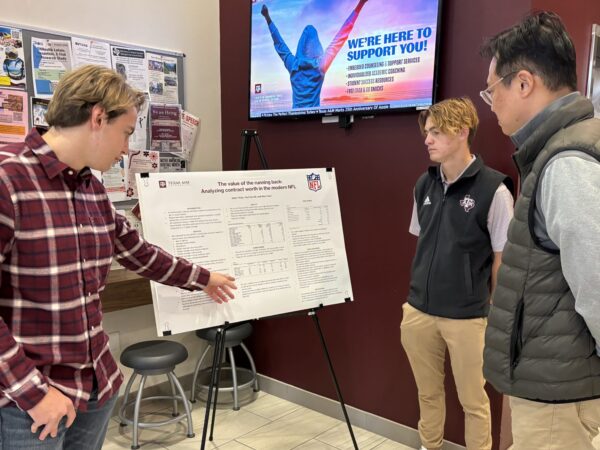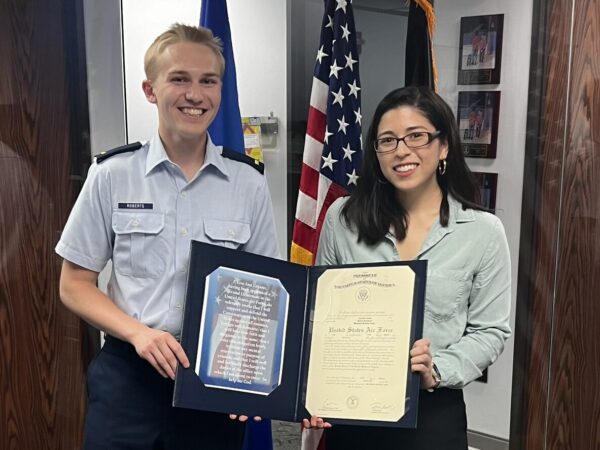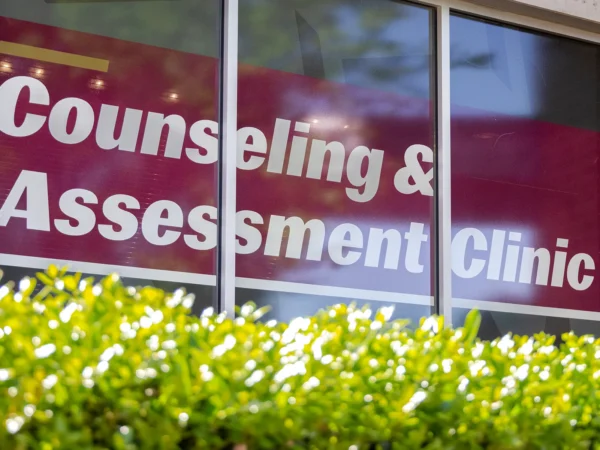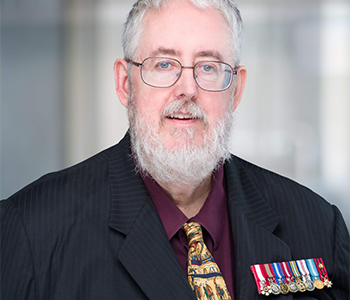
Counseling and Assessment Clinic answers call to serve during pandemic
As life came to a screeching halt due to the coronavirus pandemic, the Counseling and Assessment Clinic at Texas A&M University, and its team of faculty supervisors and graduate student clinicians, did not relent in providing services to the Brazos Valley.
“When you have people who have mental health concerns, those concerns don’t stop because of a pandemic,” said Dr. Krystal Simmons, executive director of the CAC. “We have an ethical duty to ensure that we continue to provide services. Our number one goal was how do we continue to provide the services to those who need them and also ensure our students get the appropriate training that they need to be successful clinicians in the future.”
The CAC is a low to no-cost psychological service training, research, and outreach clinic housed in the Department of Educational Psychology. Doctoral students gain experience in offering services at the clinic under the supervision of licensed faculty supervisors.
Prior to COVID-19, the public could visit either the CAC’s Community Health Center in Bryan for individual therapy for adults and children as well as couples/marital therapy or the Milner Assessment and Research Clinic at Texas A&M for an evaluation.
In March of last year, those protocols changed. Simmons was on a study abroad program in Africa when she got word of the pandemic’s impact in the Brazos Valley.
“I stayed up at night in Africa, on my laptop, and recreated a clinic almost overnight,” Simmons said.
One major change was the transition to telehealth– a way of virtually connecting clients with their providers through electronic ways such as videoconferencing.
Simmons said the challenge of transitioning to telehealth was not a simple switch. She had to ensure clients had access to the resources they needed such as internet access or understanding how to use technology.
“We have clients that don’t have emails. We have clients that do not have smartphones. We have clients that may have all of the above but are not as savvy in navigating this new platform such as a video share type of platform,” Simmons said.
Dr. Kelly Lee, who shares clinical operations responsibilities with Simmons, said this quick pivot created a way for students to adapt to the circumstances while still being able to provide their clients with services.
“We are talking about this box that we’re all in and how can you convey empathy and how can you relate to individuals through Zoom when you only see from the neck up,” said Lee about the limitations of telemedicine. “So our students have really had to expand their skills in therapy services and how to make those connections online.”
“For me, it was just a huge shift in how we make this work for our clients. From what I’ve seen, some of it has made it easier for clients to access treatment and it’s also been easier for them in terms of not feeling as nervous as going in-person,” said Daira Rodriguez, a doctoral bilingual clinician at the CAC. “It does really make it easier to just get online versus having to drive all the way to the clinic when you’re not feeling mentally well already.”
Simmons and Lee both agreed that students such as Rodriguez and the rest of the staff at the CAC became essential workers overnight.
“We haven’t stopped working,” Rodriguez said. “We’re still out there trying to do our best to provide these services both at the CAC and beyond. Psychologists are also out there helping the frontline workers, the nurses and the doctors who are dealing with all of these stresses and issues from watching their clients and patients die at a rapid pace.”
Lee emphasized how important the student counselors and staff are to being an integral part of the CAC’s operations.
“We really are taking care of the Brazos Valley and all of our clients at large while our own student counselors and our staff are also going through the pandemic at the same time,” Lee said. “So having to sort of juggle your own reaction to the pandemic and what’s going on with you, while also prioritizing your clients and their welfare and their safety, makes it the struggle that a lot of the frontline workers are dealing with now, too.”
To learn more about the CAC and access various mental health resources, visit cac.tamu.edu.
About the Writer
Justin is a native of Harlingen, the capital city of the Rio Grande Valley in Deep South Texas. He graduated in 2021 from The University of Texas Rio Grande Valley with a Bachelor of Liberal Arts, majoring in Mass Communication with a concentration in Print Journalism. Justin is responsible for writing news and feature stories for the College and its various departments to be featured via the web, social media, and various other media outlets.
Articles by JustinFor media inquiries, contact Ashley Green.














